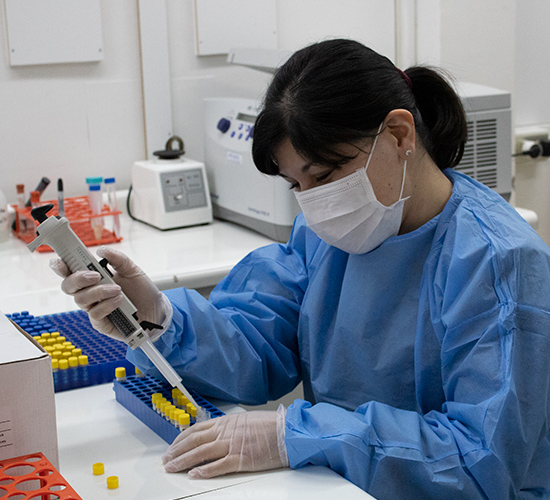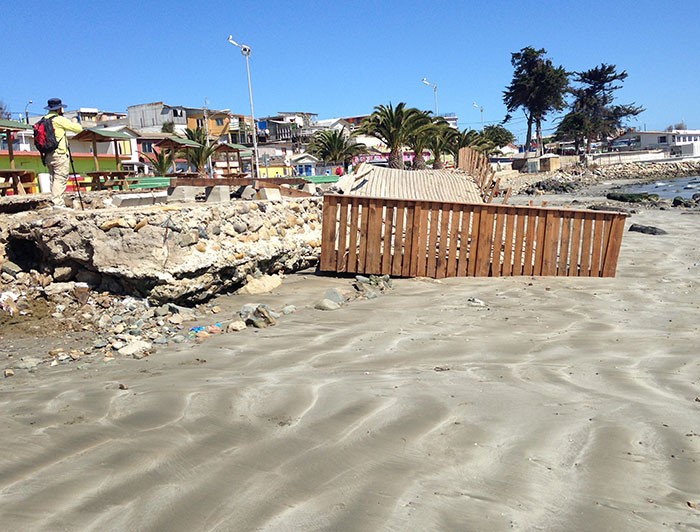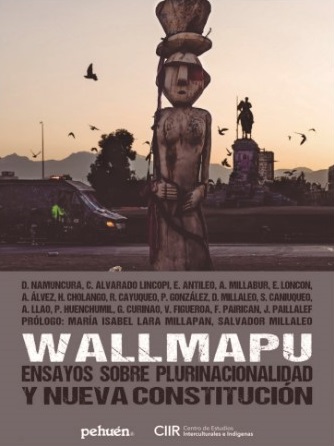ACCDIS: Research and public policy, a virtuous relationship

Preventing chronic diseases, a National Tsunami Alert System and Risk Maps, the Urban Wetlands Act, incorporation of the Indigenous and Afro-descendant Peoples into the constitutional discussion, and improve our national coexistence, are some of the fruits and challenges of Priority Area Research Centers (FONDAP), UC eaves.
Rarely had the key role of science been revealed as in this pandemic by Covid-19. Not just because of vaccine development, test and other devices, but because it became clear that having scientific evidence, indicators and reliable information in the shortest possible time, are essential for public decision-making, as for example, quarantine or what to deal with the mental health of the population, among many others.
Here research takes on a key role, where the relationship between universities and the state becomes extremely virtuous. One of the clearest examples are the Research Centers in Priority Areas (FONDAP). The first of these centers was born in 1997 and its objective is to articulate the activity of groups of researchers with demonstrated productivity, in areas of knowledge of importance for the country and where the national basic science has reached a high level of development.
Encourage research of excellence, promote the partnership between different universities and both national and international collaboration networks, seek to form advanced human capital, and disseminate research results to the scientific community and society. UC is home to five Fondap centres, in areas as relevant as chronic diseases, disaster management, sustainable urban development, intercultural and indigenous studies, and conflict and social cohesion.
As stated by the UC Vice-Chancellor of Research, Pedro Bouchon: "These centres play a decisive role, Because generate front-line research on topics of high relevance to the country's development, as national and international evaluators have consistently highlighted. Oriented research is one of the aspects that distinguish the success of countries in R + D + i + e, as highlighted in the comparative experience, with results that are put at the service of public policies, having a concrete role in improving people's quality of life”.
Chronic diseases: the other "pandemics"
The coronavirus has been, No doubt, the biggest concern of our global and national health. Only in Chile, 22,264 people have died from it (Minsal, 01 January 2021). However, There are other, quieter "pandemics". The leading cause of death in our country is cardiovascular disease - accounting for about a third of all deaths -. He's followed by cancer, with about 25,000 deaths each year.
Preventing and investigating the risk factors of chronic diseases in Chile is the objective of the Advanced Center for chronic diseases (ACCDiS ). As its director explains, Sergio Lavandero, academic in Chemical and Pharmaceutical Sciences, and Medicine from the University of Chile, and the Division of Cardiology at the University of Texas Southwestern Medical Center (EE. UU), the center "has a scientific team working on six lines of research: metabolic signaling in heart failure, biomarkers and gender differences in heart failure, tumor cell biology and inflammation, epigenomic scenarios in gastric cancer, natural history of digestive cancer, nanomedicine for cancer diagnosis and therapy”.
Concerned about hitting Chilean society harder, especially in the education and intellectual development of children, at the beginning of 2019 ACCDIS in conjunction with the Faculty of Chemical and Pharmaceutical Sciences of the University of Chile, were awarded the Regional Associative Program Explores Northern Metropolitan Region. This is responsible for the dissemination and scientific development in 17 communes of the Metropolitan Region; In its two years of execution, more than 50 events have been held for students, teachers and community at large, positively impacting more than 45.000 inhabitants of Santiago.
Another important contribution is the MAUCO project. A long-term population-based study that began in 2014 and that seeks to follow 10,000 adults between 38 and 74 years old, for at least 10 years, who are re-interviewed every certain period of time. The study focuses on Molina, in the Maule region, one of the areas with the highest rates in the country in cardiovascular disease, stomach and gallbladder cancer, as it seeks to determine the risk factors associated with obesity and chronic diseases.
Research, led by UC Medical Academic and Deputy Director of ACCDiS, Catterina Ferreccio -also member of the Covid-19 Advisory Council of the Ministry of Health- seeks to become a reference model in adult health, chile and other countries, impacting public policies that manage to change people's habits, positively impacting your health.
Predicting and reducing disaster risks

In one of the most seismic countries in the world, reducing the risk of disasters is a key challenge. This is precisely the objective of the Research Center for Integrated Disaster Risk Management (CIGIDEN), What seeks to overcome the structural gaps that the country has given the geological nature of its territory, climate variability and risk governance.
One of its important achievements has been to contribute to the implementation of a National Tsunami Alert System, through Fondef projects and international collaboration, currently operating in the Hydrographic and Oceanographic Service of the Chilean Navy (Shoa). It captures the most important scientific advances in the study of earthquakes and tsunamis.
The first projects focused on a system that would allow, quickly and accurately, determine which areas of the country could be affected by a tsunami, as a result of an earthquake. According to CIGIDEN researcher and academic at Federico Santa Maria University, Patricio Catalán, to achieve this, a method known as the "database of pre-calculated scenarios" was adapted. “Hundreds of possible events were incorporated, in such a way that, that when a tsunami happened, you can search that database for the closest thing to the real. In this way, you don't spend time doing calculations, but simply in assessing and informing the population", explains. This same academic leads a Fondef project that allows model the risk of tsunami in times close to the real.
As CIGIDEN's director and UC Engineering academic says, Rodrigo Cienfuegos: "The effort to connect scientific work with country problems and the requirements of different political and social actors, led CIGIDEN to innovate in new models of knowledge exchange. In these, scientific results are put at the center of public discussions and research work is continuously fed back from the dialogues that are facilitated in different territories with local governments, Non-Governmental Organizations (NGO), Communities, and legislators”.
An example of this new paradigm is the Costa Observatory, in which the academic of the UC Institute of Geography participates Carolina Martinez. As a cienfuegos account, "Scientific evidence has allowed to relieve the need to modernize the regulations governing the territorial and urban order of coastal areas, incorporating disaster risk reduction principles, sustainable development, adaptation to climate change, and human well-being. Through participatory processes and socio-political dialogues, the initiative is managing to position the importance of advancing this path”.
Cities to live better
In Chile, 90% of the population lives in cities. Hence, the Center for Sustainable Urban Development (CEDEUS) was born in 2013 with the aim of understand urban dynamics, and decision-making tools and processes to improve people's quality of life. This requires an interdisciplinary approach, which is cross-cutting in the work of the center, as well as interaction with civil society and the public world.
Among CEDEUS' efforts to contribute to public policy, It stands out as one of its fruits the Urban Wetlands Act, Promulgated January 2020: “The first law to emphasize protecting and preserving them, and that changes the approach of the Environment Bases Act, focusing on the ecosystem and not on the typology of investment project”, Says Carolina Rojas, researcher at the UC Institute of Urban and Territorial Studies, whose work was very important for the development of this law.
On the road to linking science to political decision-making spaces, highlights the work of twelve CEDEUS researchers as part of the Cities Bureau of the COP25 National Scientific Committee, that prepared the text "Scientific evidence and climate change in Chile: summary for decision makers". Juan Carlos Muñoz, director of CEDEUS and who led the Cities Bureau, is now part of the Scientific Advisory Committee of the Ministry of Science, Technology, Knowledge and innovation.
"It is very important that there is a permanent instance where researchers from different institutions and disciplines converge.. There is a lot of work that was done within the framework of the COP25 National Scientific Committee, we learned to network and it's good to pick up and project this experience, so that public policies consider an increasingly inescapable complex reality, and project the necessary transformations that we must undertake to tackle climate change”.
Originating peoples in the constitutional discussion

Contributing to public policies in interculturality, in an increasingly diverse society, is the challenge of Center for Intercultural and Indigenous Studies (CIIR), through a dialogue strategy and a collaborative methodology.
"During 2020, CIIR's activities focused with particular emphasis on the constituent process, initiated on November 15, 2019 with the so-called Peace Agreement. From that moment various activities began to be designed to influence public debate on the need to include Indigenous and Afro-descendant Peoples in the discussion of a new constitutional text”, explains the director of CIIR and academic of the UC School of Anthropology, Pedro Mege.
A milestone was the "Public opinion study: Original peoples and new Constitution". Although the advent of the pandemic forced a re-eedage of the date of the constitutional plebiscite, initially set for April 26, the results of this first measurement were anyway presented during that month. This data, added to those of the Longitudinal Study of Intercultural Relations presented in 2019, enhanced the constitutional discussion concerning indigenous peoples, through media interviews with various CIIR researchers.
In October the second measurement of the Study. The data were presented by the rectors Ignacio Sanchez of the UC, Carlos Peña Diego Portales University, and Alvaro Ramis, Academy of Christian Humanism University. To these studies is added the book "Wallmapu: Essays on multinationality and the new Constitution", text that brings together the contribution of artists, academics and traditional Mapuche leaders, exceeding 40 thousand downloads.
In August, the debate over the modality of incorporation of indigenous peoples and Afro-descendants in the constitutional discussion was resumed in the National Congress. In this context, three investigators from the center participated in the hearings set up by the Senate Constitution Commission.
Also, as a way to support the indigenous application process, the CIIR organized -on January 28 and 29, 2021- one Constituent School for indigenous candidates, to address issues such as campaign building, organization of power and collective rights.
For better national coexistence
The social outbreak of October 2019 revealed, among other things, the need for dialogue and to resolve conflicts together as a society. This is precisely what the Centre for Conflict And Social Cohesion Studies (COES), which aims identify and analyze the factors that generate and impact social conflict, and those who strengthen cohesion in Chile.
For this he develops data collection and lifting tools, with high quality standards, which are available in a free public repository, containing databases that account for a decade of conflict in Chile, among others; in addition to a dossier that includes publications, Books and press material organized into 18 themes.
A relevant study is the Chile Social Longitudinal Study (ELSOC), Panel study that evidences social change in a series of attitudes and perceptions of the population. His data contributed evidence on issues such as urban cohesion, Neighborhood, Migration, among others, to deliver public policy recommendations which were included in the Final report of the Advisory Council for Social Cohesion (2020), instance convened by the Ministry of Social Development and Family.
As he states Maria Luisa Mendez, COES director and academic at UC Institute for Urban and Territorial Studies. "Social science research, and in particular the ELSOC instrument, are critical to providing empirical evidence, which has been collected with the highest standards of academic excellence. The latest political processes, and the socio-health crisis in the country and the world, demonstrate the role that social sciences must play in actively participating in the discussion in the public space, generating systematic knowledge, critical and thoughtful, to show problems that are often unslubilized by various types of interests, actors and institutions”.
Thus also, in 2020 COES carried out a series of initiatives through its different instruments to promote evidence-based reflection and dialogue. Among them: the Conflict Observatory delivered a report analyzing ten years of contentious actions in Chile, plus a special on social outburst; the Observatory of Labor Strikes delivered a special on strike activity in 2019 and the effects of "18-O"; and the Observatory of Social Cohesion was launched with an interactive web platform.
